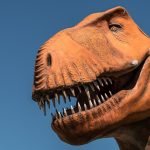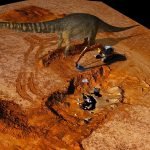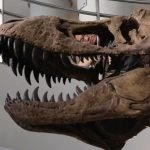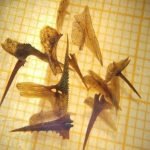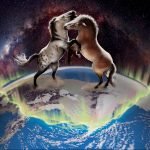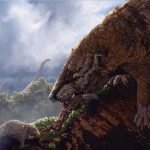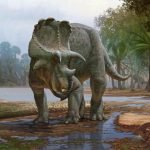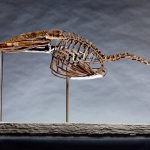Young Tyrannosaurus rexes had a mighty strong bite
When they bit down, young Tyrannosaurus rexes exerted up to 5,641 newtons of force, somewhere between the jaw forces exerted by a hyena and...
Meet Australia’s largest dinosaur — Australotitan, the southern titan!
What's as long a basketball court, taller than a b-double and has just stomped into the record books as Australia's largest dinosaur?
It's time to...
Young Tyrannosaurus rexes were deadly despite bite force one-sixth that of adults
Jack Tseng loves bone-crunching animals — hyenas are his favorite — so when paleontologist Joseph Peterson discovered fossilized dinosaur bones that had teeth marks...
Fossil secret may shed light on the diversity of Earth’s first animals
A large group of iconic fossils widely believed to shed light on the origins of many of Earth's animals and the communities they lived...
How a small fish coped with being isolated from the sea
The last ice age ended almost 12 000 years ago in Norway.
The land rebounded slowly as the weight of the ice disappeared and the...
North American and Eurasian horses are genetically connected through Bering Land Bridge, shows study
A new study of ancient DNA from horse fossils found in North America and Eurasia shows that horse populations on the two continents remained...
Mammals in the time of dinosaurs held each other back, shows study
A new study about mammal fossils reveals extraordinary results: it was not dinosaurs, but possibly other mammals, that were the main competitors of modern...
This giant sea lizard from Cretaceous period could grow up to eight meters long
Scientists have identified the fossil of a giant mosasaur in Morocco that grew up to eight meters long.
A giant mosasaur from the end of...
This horned dinosaur from New Mexico was the earliest of its kind
A newly described horned dinosaur that lived in New Mexico 82 million years ago is one of the earliest known ceratopsid species, a group...
What can a dinosaur’s inner ear tell us?
If paleontologists had a wish list, it would almost certainly include insights into two particular phenomena:
How dinosaurs interacted with each other and how they...

